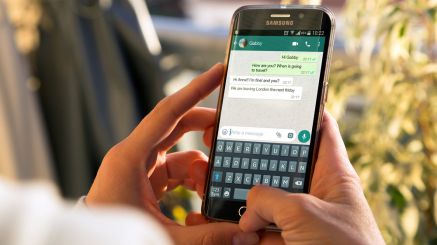WhatsApp Announce Major Change To The Way We Use Group Chats

One of the greatest scourges of modern life is the ubiquity of group-chats - or at least it is if you are able to ignore about 99% of the actual genuine problems that are currently ravaging the world. If we are to shelve those, however, then I think we can concede that the prevalence and plurality of group chats is at the very least, a source of mild irritation.
Group chats transform your friends from being, people you like to 'see and hang out with in real life' into 'prolific spammers with whom you have an overly familiar relationship'. Due to group chats, your phone has gone from being a once useful tool for communication to being little more than a vessel for a distant school friend to bring to your attention a compilation video of dogs falling in swimming pools. Much as this may occasionally offer a welcome reprieve from the tedium of study etc. the slew of reaction emojis and subsequent notifications this throws forth immediately undermine what enjoyment you may have gleaned from the video. Indeed, how many labradors must be filmed comically fall into for you to feel that the subsequent hour of notifications has been worth it.
Well, thankfully, Whatsapp are introducing a feature which will, at the very least prevent people from automatically being added into new group chats. You can now opt to ban anyone from adding you into new group chats, or you can limit it so that you can only be added into a new group chat by someone saved to your contacts list.
Should you choose to restrict who can add you to new groups, you can still be invited to groups by having a private link sent to you. The link will show you basic details about the group and will give you 72 hours to respond to whether you would like to join the group or not.
Despite what vast swathes of the opening of this article might've intimated, the real reason for this decision comes as part of a move to help tackle the profligacy of fake news and misinformation being spread across the platform. A BBC report highlighted a rampant problem during the 2018 Brazilian presidential elections - which saw the far-right Jair Bolsonaro assume office - whereby campaigners would add random people to large group chats where politically charged content would be shared.
WhatsApp, which is owned by Facebook - who have similarly pledged to try tackle problems with political propaganda being shared illicitly through its platform - have said that the updates to their service are set to be introduced worldwide within the next few weeks.
When the changes are introduced users will be able to update their settings, should they so choose, by going to the 'Account Options' section and under 'Privacy' and 'Groups' selecting between three options of 'Nobody', 'My Contacts' and 'Everybody'.